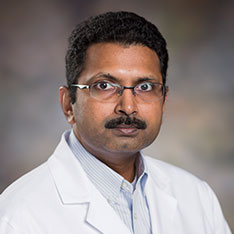The colon is about 5 feet long in adults. It absorbs water and forms a solid stool as waste moves through. Understanding how this part of the digestive tract functions is key for detecting and preventing serious conditions, such as colon cancer.
What Is a Colonoscopy?
A colonoscopy allows our specialists to view the inner walls of the colon. This hour-long procedure requires a flexible tube about the size of your finger to be inserted into the anus, where it slowly pushes through the whole length of the colon.
Sometimes, your provider may remove tissue or abnormal growths (polyps) for more testing.
When Would I Need a Colonoscopy?
Your provider may recommend a colonoscopy if you experience the following symptoms:
- Persistent diarrhea
- Severe hemorrhoids
- Blood in your bowel movements
- Weight loss
You may also require a colonoscopy if you have a family history of cancer.
Benefits of a Colonoscopy
A colonoscopy has many benefits, such as diagnosing colon or rectal diseases like colorectal cancer. It can also help identify precancerous polyps and the following:
- Redness or swelling
- Open sores (ulcerations)
- Narrowed areas of the colon
- Pouches along the colon wall
Early detection of colon or rectal disease can lower your risk for health complications or death.
Know Before You Go
When you are scheduled for a colonoscopy, a digestive health specialist will provide you with instructions on how to prepare for the procedure.
If you have not received your prep, Bisacodyl laxative tablets (Dulcolax) or Simethicone anti-gas tablets (Gas-X, Mylanta, Phazyme, Maalox, or other) please contact the Endoscopy Center where your procedure will be performed.
Your procedure will be performed at one of these three locations:
- University Hospital: 201-358-2091
- Robert B. Green Surgery Center: 210-358-6700
- MARC Surgery Center: 210-644-9300
References
Medications
You are allowed to continue taking medications as needed. However, if you take any of the below medications, do the following.
- Diabetic pills or insulin: Ask your provider if the dose can be changed on the day of your procedure.
- Weekly GLP-1 injections: Stop injections one week before the procedure.
- Daily GLP-1 medications: Do not take your dose on the day of the procedure.
If you take a blood thinning medication, ask your doctor if it’s safe to stop leading up to your procedure. Below, you will find a preferred timeline of when you should stop taking certain blood thinning medications IF approved by your provider.
|
Medicine |
When to stop taking medications – if approved by provider |
|
Plavix (Clopidogrel) |
7 days before procedure |
|
Effient (Prasugrel) |
7 days before procedure |
|
Brilinita (Ticagrelor) |
3-5 days before procedure |
|
Zontivity (Vorapaxar) |
5-13 days before procedure |
|
Warfarin (Coumadin) |
5 days before procedure |
|
Pradaxa (Dabigatran) |
1-2 days before procedure |
|
Xarelto (Rivaroxaban) |
1-2 days before procedure |
|
Eliquis (Apixaban) |
1-2 days before procedure |
|
Savaysa (Edoxaban) |
1-2 days before procedure |
|
Aspirin |
DO NOT STOP |
Clear Liquid Guidelines
One day before your procedure, you will be on a clear liquid diet. Clear liquids are fluid you can see through, including:
- Water
- Apple juice
- White grape juice
- Clear broth (NO chicken noodle soup)
- Gatorade or sports drinks
- Kool-Aid
- Popsicles (NO ice cream, yogurt or fruit bars)
- Jell-O
- Sodas
- Tea
- Coffee (NO creamer/milk)
Do not drink anything red, blue or green. This will prevent the physician from seeing your colon clearly.
Preparing for Your Procedure
Five Days Before the Procedure
Five days before the procedure, you will need to adjust your food choices to consist of a low-fiber diet. This diet includes eating more animal protein, such as eggs, chicken and fish. When it comes to bread, your provider will either give you the okay to eat low-fiber breads or avoid them altogether.
High-fiber foods to avoid include:
- Nuts
- Seeds
- Fruits/vegetables with skin or seeds
In addition to dietary changes, you must stop taking all dietary fiber supplements (Metamucil, FiberCon, Citrucel), vitamins and iron.
Now is also a good time to arrange your sponsor for the day of the procedure. A sponsor must at least 18 years old and is able to stay until you are ready for discharge (2-4 hours if necessary).
If you do not have a sponsor or if they are unable to take you home, you will have to reschedule your procedure. You will not be able to drive yourself home following your colonoscopy.
Contact the Endoscopy Center or the Scheduling Department at 210-358-8841, if you will need to cancel or reschedule your appointment for any reason.
One Day Before the Procedure
Follow these instructions one day before the procedure so your provider can clearly see your colon:
- DO NOT eat any solid food until after your procedure.
- Do not consume the following:
- Milk or milk products
- Soy or non-dairy creamers
- Juice pulp
- Alcohol
- Anything red, blue or green in color
- Take your usual medications unless told otherwise.
At noon the day before, do the following:
- Take 2 Bisacodyl tablets
- Mix prep with water and place in your refrigerator (you may add lemon-lime Crystal Light to the prep)
At 6 p.m., follow these steps:
- Shake the prep mixture and begin drinking
- Drink one 8 ounce glass every 10 minutes until you have finished half of the prep mixture
- Take two simethicone anti-gas tablets with water
- If you feel nauseous or vomit during the prep, stop for 15 minutes; then continue at a slower pace
On the Day of the Procedure
Contact the Endoscopy Center if you are still passing solid stool. Your stool should be clear or yellow liquid. You should be able to see the bottom of the toilet.
Six hours before your procedure, drink the second half of the prep mixture and take two simethicone anti-gas tablets with water. You may drink up water up to four hours before your procedure.
You are allowed to take your routine medications with a sip of water for the following reasons:
- Blood pressure
- Seizure
- Heart
- Post-transplant
Do not chew tobacco, smoke (cigarette, cigar, pipe, marijuana, vapor), drink alcohol or consume recreational drugs.
After Your Colonoscopy
During a colonoscopy, air is placed in the colon to help visualize the walls of the colon. As a result, you may experience bloating and cramping after the procedure. As you expel the air, the cramping and bloating will decrease. It can take up to 24 hours to resolve.
It also is common to feel tired after the procedure because of the medications given during the procedure. The sleepiness can last until the next day. On procedure day, plan to have a quiet day with light activity.
While you can eat and drink normally after the procedure, we suggest starting with a light meal and advancing your diet as tolerated.
Post Procedure Tips
Due to the sedation used during the procedure, we do NOT recommend the following:
- Driving or working until the next day
- Using machinery or equipment that can cause injury
- Signing any important papers
- Making any important decisions
Lessen cramping or bloating by:
- Walking
- Resting
- Placing hot water bottle/heating pad over the abdomen
- Expelling air as able
When to go to the emergency room
If you have any of the following symptoms, go to the nearest emergency room.
- Fever
- Chills
- Persistent nausea/vomiting/diarrhea
- Bleeding (more than 1 teaspoon at one time)
- Worsening or persistent abdominal pain



